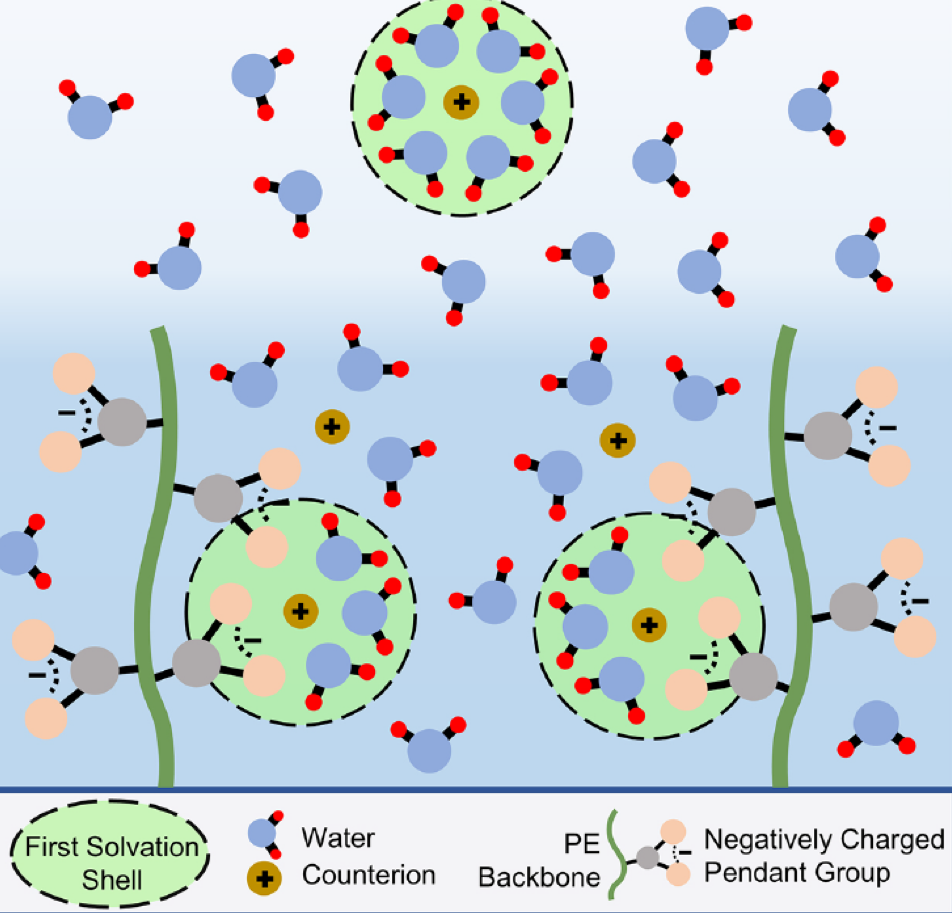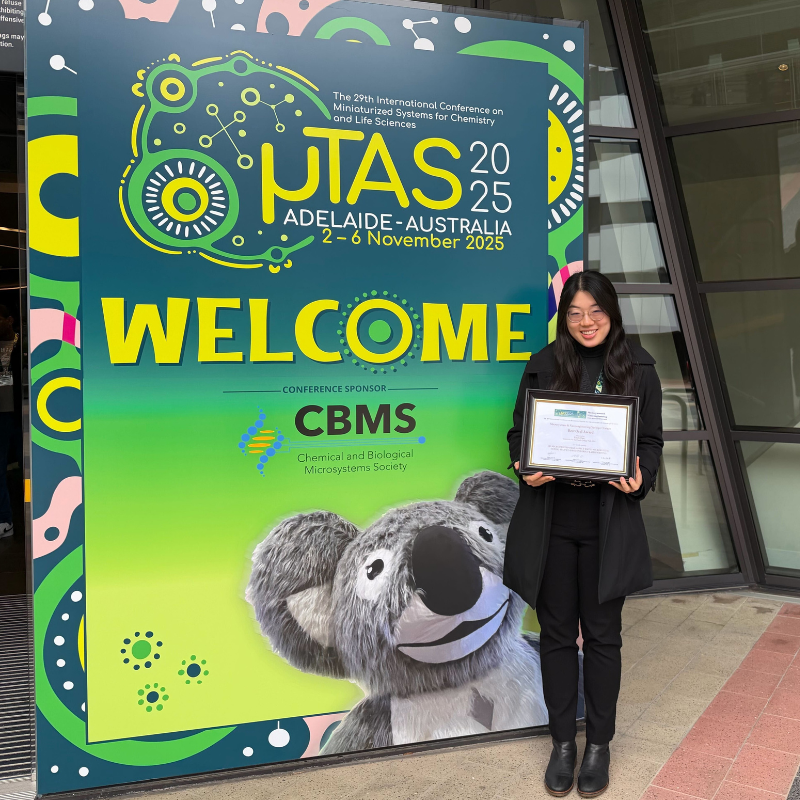News Story
UMD Researchers to Publish Study on Polyelectrolyte Brushes
 New work by UMD researchers in the mechanical engineering department, part of the A. James Clark School of Engineering, is forthcoming in Matter, the publication announced Monday (March 23).
New work by UMD researchers in the mechanical engineering department, part of the A. James Clark School of Engineering, is forthcoming in Matter, the publication announced Monday (March 23).
Matter, a Cell Press journal, will publish the paper “Grafted Polyelectrolyte Brushes Trigger ‘Water-in-Salt’-like Scenarios and Ultraconfinement Effect,” by Associate Professor Siddhartha Das and co-authors Dr. Peter W. Chung, Parth Rakesh Desai, Sai Ankit Etha, Turash Haque Pial, Harnoor Singh Sachar, and Yanbin Wang.
The paper will be published on Volume 2, Issue 6 of the journal, with a publication date of June 3, and will appear online at https://www.cell.com/matter.
Das and the research team created an all-atom molecular dynamics simulation of highly charged and densely grafted polyelectrolyte (PE) brushes on a flat surface. Among other findings, the researchers established that densely grafted brushes trigger an ultraconfinement effect, leading to significant changes in distribution, structure, and properties. “There is also the triggering of a water in salt-like scenario where, around the PE brushes, the water molecules in the hydration shell of the ions get replaced by the functional group from the brushes,” Das said.
“This is one of the earliest studies to probe the intriguing behavior of PE brushes with such a remarkable level of atomistic resolution,” --Dr. Siddhartha Das
 “This is one of the earliest studies to probe the intriguing behavior of PE brushes with such a remarkable level of atomistic resolution,” he said.
“This is one of the earliest studies to probe the intriguing behavior of PE brushes with such a remarkable level of atomistic resolution,” he said.
The research problem was conceived by Das, who wrote the paper together with Sachar, a PhD student in the ME department. Sachar and fellow doctoral student Pial ran the simulations, while the data was analyzed by PhD students Desai, Etha, and Wang, and by Chung, an associate professor of mechanical engineering. The Deepthought2 High-Performance Computing cluster provided computational support.
Their work was supported by a grant from the U.S. Department of Energy.
Matter, a sister journal to Cell, publishes findings from across the general field of materials science, from nano to macro. A key focus is on transformative research, related to fundamental structure, synthesis and assembly, properties and performance of emerging material systems.
UMD is considered a leader among mechanical engineering programs nationwide; the latest rankings from U.S. News & World Report listed the department as #17 among the 179 programs nationwide that offer PhD programs in the field. The Clark School is #20 among graduate schools in engineering, according to the newly-released rankings.
Published March 23, 2020









